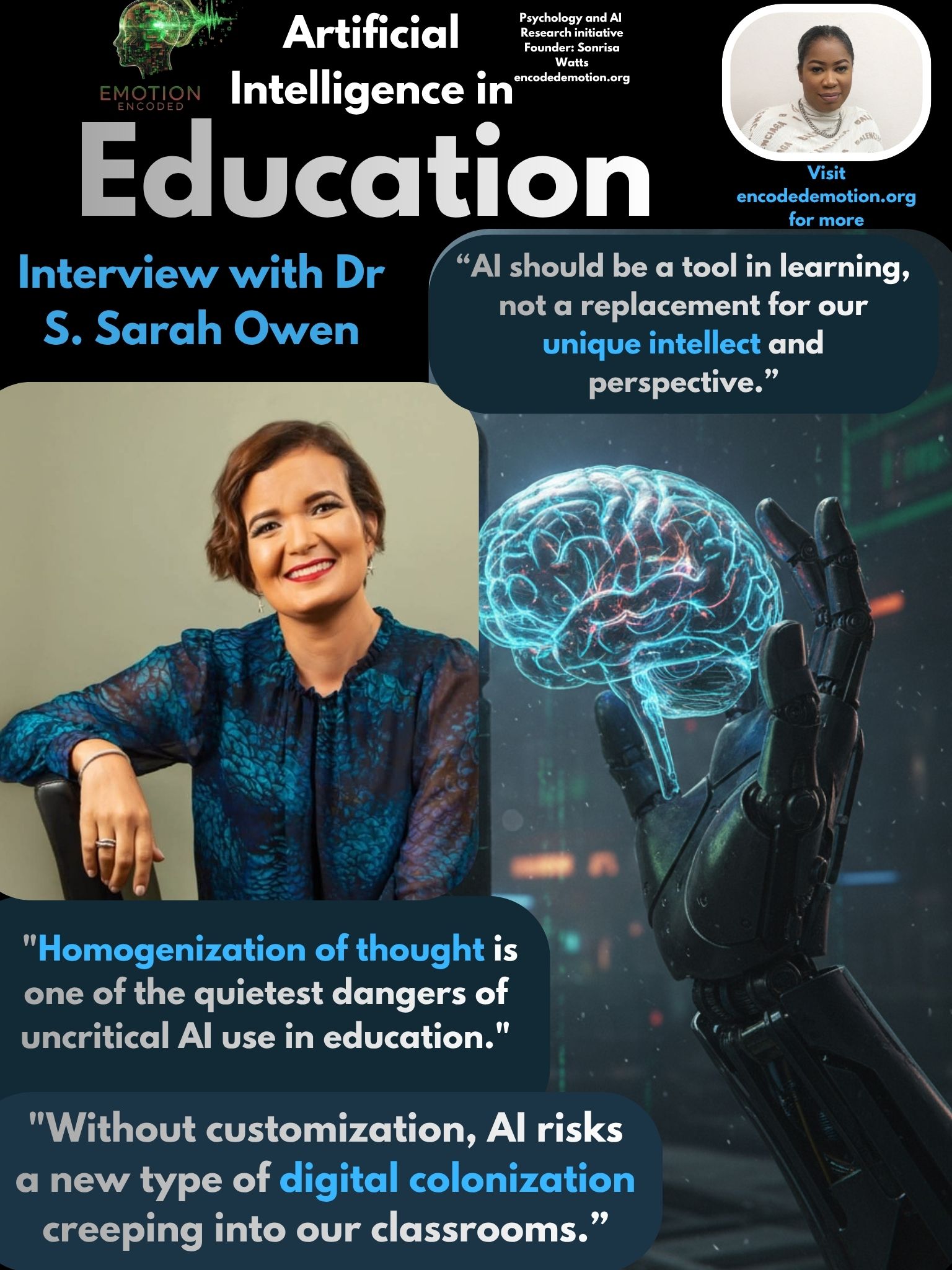As artificial intelligence continues to reshape how humans interact, work, and think, educators face an important question: how can AI enhance learning without compromising the human essence of education? Dr. Sarah Owen, an experienced educator, shared her insights with the Emotion Encoded Research Initiative on how AI integration can strengthen or weaken the cognitive and emotional foundations of teaching and learning.
AI as a Tool, Not a Replacement
Dr. Owen believes that while AI offers tremendous potential in lesson planning and personalized learning, its use must remain guided by human judgment.
“In my opinion and experience AI can be beneficial in this context but must be carefully utilized,” she explained. “AI can provide a useful starting point, but experience and expertise in curriculum development should ensure that the learning objectives match the specific needs of the student.”
She notes that AI often draws from global datasets that may not capture regional or cultural learning differences. Within the Caribbean, this can mean that AI-generated lesson plans or learning materials may overlook crucial socio-cultural or linguistic contexts. “Because AI mines what already exists online, it may not always fit the specific learning needs of the students,” she added.
Dr. Owen encourages both teachers and students to view AI as a support system, not a substitute. “Utilize it to help you set the foundation, but build on it with your own learning, critical thinking skills, and approach to topics. In that way the students are using it as a tool in their learning, not a replacement for their unique intellect and perspective.”
Benefits and Risks of AI Integration
When asked about the main benefits and challenges of AI in education, Dr. Owen highlighted the dual nature of the technology.
Among the benefits, she pointed to AI’s ability to alleviate writer’s block and save time on preliminary research. However, she emphasized several growing concerns, including overreliance on AI-generated outputs and the risk of intellectual stagnation.
“AI can inculcate a lazy approach to work if it is used to generate a finished product without review or creativity,” she warned. “It also contributes to increased misinformation when content and images are not checked for accuracy or considered in context.”
Perhaps her most striking observation addressed a broader socio-cultural risk: “Homogenization of thought – those cultures that are more digitally literate will create the information and tools utilized by the less digitally literate, leading to a new type of colonization that may creep into societies and cultures through our education system if used without customization.”
Guidance for Educators Entering the AI Era
For teachers beginning to explore AI tools, Dr. Owen recommends an open yet critical approach. “I would suggest that teachers embrace it – in most cases they are already using it without even knowing, as it is embedded in the technology usually used for research or word processing.”
Her advice centers on maintaining professional authenticity. “Always remember that AI is a tool to make our work easier and better, but not a replacement for our individual contribution. Always customize, verify, and create. Let your work continue to add value to the practice of teaching and learning.”
Reflections on Emotional Intelligence in AI Adoption
Dr. Owen’s perspective aligns with the ongoing research at Emotion Encoded, which examines how cognitive bias, emotional reasoning, and metacognitive dissonance influence trust in AI systems. Her insights underscore a recurring theme: effective AI adoption in education demands both critical engagement and emotional awareness.
In an age where automation promises efficiency, her reminder is simple yet profound — education thrives not only on information but on imagination, empathy, and intellect.
